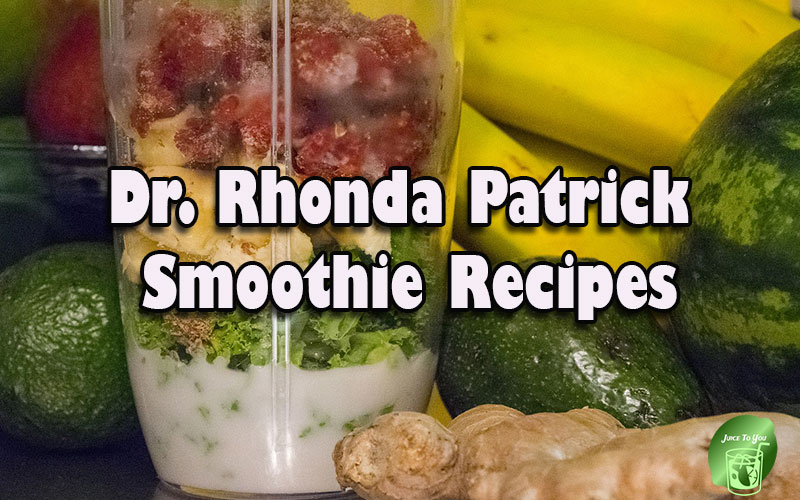If you’re looking to improve your digestive health, why not try incorporating some delicious and nutritious juice recipes into your daily routine? From soothing an upset stomach to promoting regular bowel movements, these juices can provide a natural and tasty solution for maintaining a healthy digestive system. Packed with vitamins, minerals, and fiber, these recipes are not only good for your gut, but they also offer a refreshing and flavorful way to boost your overall well-being. So grab your juicer and get ready to sip your way to a healthier digestive system.
Review contents
Understanding the Importance of a Healthy Digestive System
The role of the digestive system in overall health
Your digestive system plays a crucial role in your overall health and well-being. It is responsible for breaking down the food you eat into nutrients that your body can absorb and utilize for energy, growth, and repair. Additionally, a healthy digestive system ensures proper elimination of waste and toxins from your body. Without a properly functioning digestive system, your body may struggle to get the nutrients it needs and may be more prone to various health issues.
Common digestive system disorders
Digestive system disorders can have a significant impact on your daily life and overall health. Some common disorders include:
- Gastroesophageal reflux disease (GERD): This condition occurs when stomach acid flows back into the esophagus, causing heartburn, chest pain, and difficulty swallowing.
- Irritable bowel syndrome (IBS): IBS is a chronic disorder that affects the large intestine and can cause abdominal pain, bloating, gas, diarrhea, and constipation.
- Crohn’s disease: This inflammatory bowel disease causes inflammation of the digestive tract, leading to symptoms such as abdominal pain, diarrhea, fatigue, and weight loss.
- Ulcerative colitis: Similar to Crohn’s disease, ulcerative colitis also causes inflammation of the digestive tract, specifically the colon and rectum, resulting in symptoms like abdominal pain, bloody diarrhea, and fatigue.
It is important to note that while diet can play a role in managing these conditions, it is always recommended to consult with a healthcare professional for proper diagnosis and treatment.
The impact of diet on digestive health
Your diet has a profound impact on your digestive health. Consuming a balanced diet that is rich in fiber, vitamins, and minerals is essential for maintaining a healthy digestive system. On the other hand, a diet high in processed foods, sugary snacks, and unhealthy fats can lead to digestive problems, such as constipation, bloating, and indigestion.
Additionally, certain foods can trigger or worsen specific digestive disorders. For example, those with GERD may need to avoid spicy foods, citrus fruits, and caffeine, as these can aggravate symptoms. Similarly, individuals with IBS may need to identify and avoid trigger foods, such as gluten, dairy, or certain types of fiber.
By making mindful choices about your diet and incorporating healthier options, you can promote optimal digestive health and reduce the risk of developing digestive system disorders.
Benefits of Juices for Digestive Health
Nutritional value of freshly squeezed juices
Freshly squeezed juices are packed with essential nutrients, including vitamins, minerals, and antioxidants, which are vital for maintaining a healthy digestive system. When fruits and vegetables are juiced, their nutrients are more readily available and easily absorbed by your body.
Juices made from a variety of fruits and vegetables can provide a wide range of nutrients that support digestive health. For example, leafy greens like kale and spinach are rich in fiber, which aids in digestion and promotes regular bowel movements. Citrus fruits like oranges and lemons are high in vitamin C, which can help reduce inflammation in the digestive tract.
Hydration and digestion
Proper hydration is essential for maintaining a healthy digestive system. When you are dehydrated, your body may not produce enough saliva, gastric juices, and mucus, which are necessary for proper digestion. Drinking juices, especially those with high water content fruits like watermelon or cucumbers, can help keep you hydrated and promote optimal digestion.
Detoxification and cleansing effects
Certain fruits and vegetables, when juiced, can have detoxifying and cleansing effects on your digestive system. For example, beets are known to support liver function and help remove toxins from the body. Carrots are rich in antioxidants that can help protect the liver from damage. Including these ingredients in your juices can aid in detoxification and promote a healthier digestive system.
Choosing the Right Ingredients
High-fiber fruits and vegetables
When selecting ingredients for your juices, opt for fruits and vegetables that are high in fiber. Fiber is essential for maintaining regular bowel movements and preventing constipation. Some examples of high-fiber fruits and vegetables include apples, pears, berries, carrots, and leafy greens. Incorporating these ingredients into your juices can provide a natural source of digestive support.
Gut-friendly ingredients
Some ingredients are particularly beneficial for gut health. These include probiotic-rich foods like yogurt and kefir, which introduce beneficial bacteria to the digestive system. Other gut-friendly ingredients include ginger, which can help reduce inflammation and relieve digestive discomfort, and aloe vera, which has soothing properties for the digestive tract. Adding these ingredients to your juices can provide additional support for your digestive system.
Organic and pesticide-free produce
When possible, choose organic and pesticide-free produce for your juices. Pesticides and other chemical residues found in conventionally grown fruits and vegetables can potentially disrupt the balance of beneficial bacteria in your digestive system. By opting for organic produce, you can reduce your exposure to these harmful substances and support a healthier digestive system.
Juice Recipes for Optimal Digestive Health
Green Juice with Kale, Spinach, and Cucumber
- 2 cups of kale leaves
- 1 cup of spinach
- 1 cucumber
- 1 green apple
Instructions: Wash all the ingredients, chop them into smaller pieces, and juice them together. Serve immediately and enjoy the refreshing taste of this nutrient-packed green juice.
Citrus Blast Juice with Orange, Lemon, and Ginger
- 2 oranges, peeled
- 1 lemon, peeled
- 1 thumb-sized piece of ginger
Instructions: Juice the oranges, lemon, and ginger together. Stir well and savor the tangy and invigorating flavor of this citrus blast juice.
Beet and Carrot Juice for Detoxification
- 1 beetroot, peeled
- 2 carrots, peeled
- 1 inch of fresh ginger
- 1 lemon, peeled
Instructions: Juice all the ingredients together, making sure to extract all the vibrant colors from the beets and carrots. Sip on this detoxifying juice and feel the cleansing effects on your digestive system.
Pineapple and Ginger Juice for Inflammation
- 1 cup of pineapple chunks
- 1 thumb-sized piece of ginger
- 1 cucumber
Instructions: Juice all the ingredients together and enjoy the tropical goodness of this anti-inflammatory juice. The combination of pineapple and ginger provides a refreshing and soothing effect on your digestive system.
Papaya and Mint Juice for Bloating
- 1 ripe papaya, peeled and deseeded
- A handful of fresh mint leaves
Instructions: Juice the papaya and mint leaves together to create a refreshing and soothing juice. This combination can help relieve bloating and promote healthy digestion.
Apple and Celery Juice for Regularity
- 2 apples, cored
- 4 stalks of celery
Instructions: Juice the apples and celery together, ensuring a smooth blend of flavors. This juice is not only delicious but also promotes regularity and supports a healthy digestive system.
Turmeric and Coconut Water Juice for Gut Healing
- 1 thumb-sized piece of turmeric
- 1 cup of coconut water
- 1 tablespoon of honey (optional)
Instructions: Juice the turmeric and mix it with the coconut water. If desired, add honey for sweetness. This unique combination provides anti-inflammatory benefits and aids in gut healing.
Aloe Vera and Lemon Juice for Soothing Irritation
- 1 fresh aloe vera leaf
- Juice of 1 lemon
- 1 tablespoon of honey (optional)
Instructions: Extract the gel from the aloe vera leaf and juice it with the lemon. If desired, add honey for additional sweetness. This juice helps soothe irritation in the digestive system and promotes healing.
Blueberry and Banana Smoothie for Gut Health
- 1 cup of blueberries
- 1 ripe banana
- 1 cup of almond milk
- 1 tablespoon of chia seeds
Instructions: Blend all the ingredients together until you achieve a smooth consistency. This gut-healthy smoothie is rich in antioxidants and fiber, promoting a healthy digestive system.
Watermelon and Mint Juice for Hydration
- 2 cups of watermelon chunks
- A handful of fresh mint leaves
Instructions: Juice the watermelon chunks and mint leaves together for a refreshing and hydrating juice. Watermelon contains high water content, keeping you hydrated, while mint aids in digestion.
Tips and Techniques for Juicing
Choosing the right juicer
When it comes to juicing, using the right juicer can make a difference. There are two main types of juicers: centrifugal juicers and masticating juicers. Centrifugal juicers are generally more affordable and suitable for juicing most fruits and vegetables. Masticating juicers, on the other hand, operate at a slower speed and extract more juice from leafy greens and softer fruits. Consider your juicing needs and preferences when choosing the right juicer for you.
Preparation and cleaning
Before juicing, ensure that your fruits and vegetables are thoroughly washed, especially if you are using conventionally grown produce. Remove any tough peels or seeds if necessary. After juicing, clean your juicer immediately to avoid any buildup or residue that can impact the taste and quality of your future juices.
Balancing flavors and sweetness
Experiment with different ingredient combinations to find flavors that you enjoy. Remember to balance sweetness with other flavors to avoid overly sugary juices. Adding citrus fruits like lemon or lime can help enhance flavors and add a refreshing twist.
Incorporating herbs and spices
Herbs and spices can take your juices to the next level by adding depth and complexity. Try adding fresh herbs like mint, basil, or cilantro to your juices for added freshness and flavor. Spices like ginger, turmeric, or cinnamon can provide a warming sensation and additional health benefits.
Mixing and matching ingredients
Don’t be afraid to mix and match ingredients to create your own unique juice recipes. Use the recipes provided as a starting point, but feel free to experiment and customize based on your preferences and nutritional needs.
Juice Fasts and Cleanses
Benefits and risks of juice fasting
Juice fasting involves consuming only juices for a specific period, usually ranging from a few days to a week or more. Proponents of juice fasting believe that it allows the digestive system to rest and aids in detoxification. However, it is important to note that juice fasting may not be suitable for everyone and can carry potential risks. Extended juice fasts may lead to nutritional deficiencies, muscle loss, and a slowed metabolism. It is crucial to consult with a healthcare professional before embarking on a juice fast to ensure it is safe and appropriate for your individual needs.
Different types of juice cleanses
There are various types of juice cleanses available, each with its own specific focus. Some cleanses may target weight loss, while others may aim to improve digestion or boost overall health. Research and choose a juice cleanse that aligns with your goals and consult with a healthcare professional for guidance.
How to properly embark on a juice cleanse
If you decide to try a juice cleanse, it is essential to prepare your body beforehand. Gradually reduce your intake of processed foods, caffeine, and alcohol leading up to the cleanse. During the cleanse, listen to your body and consume a variety of juices throughout the day. Be mindful of any changes or discomfort in your body and adjust your cleanse accordingly. Lastly, slowly transition back to solid foods after the cleanse to allow your digestive system to adjust.
Monitoring your body’s response during a cleanse
Throughout the cleanse, pay attention to how your body responds. It is normal to experience some changes, such as increased urination, mild fatigue, or changes in bowel movements. However, if you experience severe discomfort, extreme weakness, or persistent symptoms, it is important to discontinue the cleanse and seek medical advice.
Supplements for Digestive Support
Probiotics for gut health
Probiotics are live bacteria and yeasts that are beneficial for your digestive system. These “good” bacteria help maintain the natural balance of microorganisms in your gut. Incorporating probiotic supplements or foods like yogurt, kefir, or sauerkraut into your diet can support a healthy digestive system and improve overall gut health.
Digestive enzymes for better digestion
Digestive enzymes are naturally produced by your body and help break down food into smaller molecules for absorption. However, some individuals may have insufficient enzyme production, leading to digestive issues. Digestive enzyme supplements can aid in the digestion of specific nutrients and alleviate symptoms like bloating, gas, and indigestion.
Fiber supplements for regularity
If you struggle to meet your daily fiber intake through diet alone, fiber supplements may be beneficial. Fiber supplements can help promote regular bowel movements, alleviate constipation, and support gut health. However, it is important to consult with a healthcare professional before starting any new supplements, as they may interact with certain medications or medical conditions.
Herbal remedies for digestive issues
Herbal remedies have a long history of use in promoting digestive health. Some commonly used herbs for digestive support include peppermint, ginger, chamomile, and fennel. These herbs can help soothe the digestive tract, reduce inflammation, and relieve symptoms like bloating or indigestion. Remember to consult with a healthcare professional before using herbal remedies, especially if you have any underlying health conditions or are taking medications.
Consulting a healthcare professional
Before starting any new supplements, it is important to consult with a healthcare professional, such as a doctor or registered dietitian. They can provide personalized advice based on your specific health needs, ensure that the supplements are safe and appropriate for you, and help monitor your progress.
Incorporating Juices into Your Daily Routine
Choosing the right time to drink juices
There is no definitive rule for when to drink juices, as it largely depends on your lifestyle and preferences. Some individuals prefer to drink juices in the morning as a refreshing way to start the day, while others may enjoy them as a mid-day snack or alongside meals. Ultimately, choose a time that works best for you and allows you to fully enjoy and benefit from the goodness of freshly squeezed juices.
Meal replacements or supplements
Juices can be enjoyed as a standalone beverage or as a supplement to your meals. They can serve as a nutritious snack or a meal replacement, especially when combined with additional protein or healthy fats. However, it is important to ensure that you are still consuming a balanced diet and getting all the essential nutrients your body needs.
Juice pairing with meals
Certain juices can complement your meals by providing additional nutrients and flavor. For example, a green juice made with kale, spinach, and cucumber can be a refreshing accompaniment to a light salad or a vegetable-packed meal. Experiment with different juice and meal combinations to find what tastes best to you.
Creating a personalized juicing plan
Tailor your juicing plan to your specific needs and preferences. Consider including a variety of fruits and vegetables that support digestive health and taste appealing to you. Experiment with different recipes and flavors to keep things exciting and ensure you meet your nutritional goals.
Sustaining healthy habits long-term
Incorporating juices into your daily routine is just one aspect of maintaining a healthy digestive system. To truly support your digestive health, it is crucial to adopt a holistic approach that includes a balanced diet, regular physical activity, stress management, and adequate sleep. By prioritizing these healthy habits, you can promote optimal digestive health and overall well-being in the long run.
Listen to Your Body
Recognizing digestive discomfort
Your body has a way of communicating with you, and it is important to listen to its signals. Pay attention to any signs of digestive discomfort, such as bloating, gas, indigestion, or changes in bowel movements. These symptoms may indicate an underlying issue or a reaction to certain foods. By recognizing and addressing discomfort, you can take the necessary steps to support your digestive health.
Monitoring bowel movements and changes
Bowel movements can provide valuable insights into your digestive health. Changes in frequency, consistency, or color may indicate an imbalance or an issue within your digestive system. Keeping track of your bowel movements and noting any changes can help you identify potential problems and seek appropriate advice or treatment.
Experimenting with ingredients and recipes
Every individual is unique, and what works well for one person may not work for another. Don’t be afraid to experiment with different ingredients and recipes to find what suits your body best. Pay attention to how your body responds to different ingredients and adjust accordingly.
Seeking professional advice when necessary
While juicing and making dietary changes can have many benefits for your digestive health, it is important to seek professional advice when necessary. If you experience persistent or severe digestive issues, consult with a healthcare professional who can provide a proper diagnosis, offer personalized advice, and guide you towards the most appropriate treatment options.
Conclusion
A healthy digestive system is crucial for overall well-being and can significantly impact your quality of life. By understanding the importance of a healthy digestive system and incorporating juices into your daily routine, you can support optimal digestion and promote a healthier gut. Remember to choose the right ingredients, experiment with recipes, and listen to your body’s signals. Seek professional advice when needed and adopt a holistic approach that encompasses healthy habits beyond just juicing. Prioritizing your digestive health will not only enhance your overall wellness but also leave you feeling energized and vibrant. Cheers to a healthier digestive system!

































